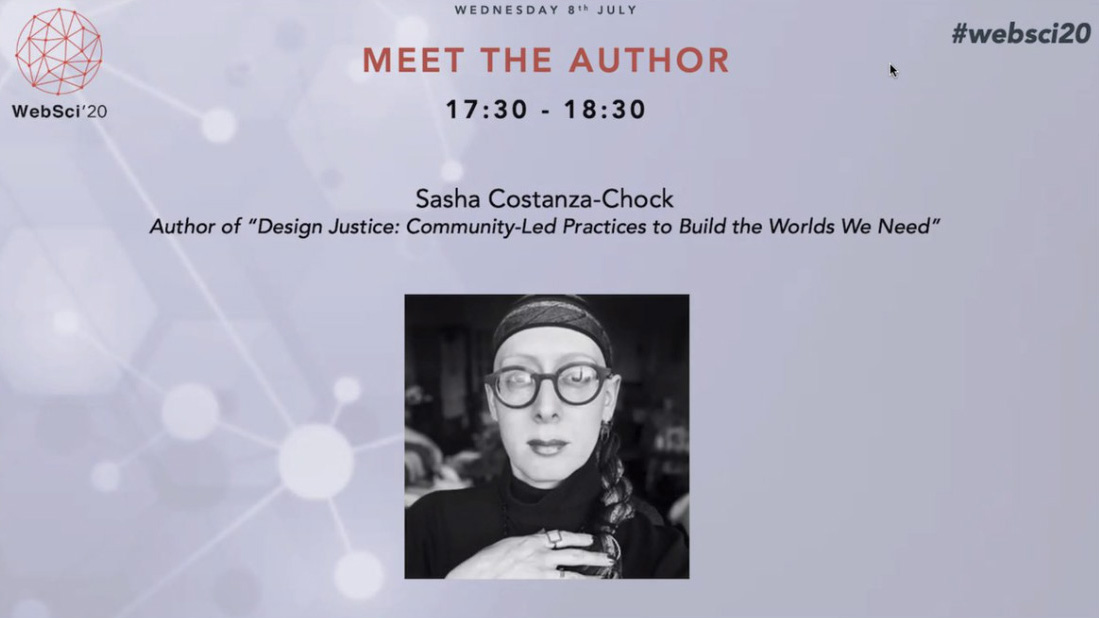#WebSci20 – Meet the Author by Ian Brown
Meet the Author:
In Wednesday’s “Meet the Author” session Sasha Costanza-Chock, author of “Design Justice: Community-Led Practices to Build the Worlds We Need” spoke with Bindi Shah researcher at University of Southampton about Sasha’s work on Social Justice both as a methodology based on key design principles and also as a community of practice who are actively engaging in community-led design.
Sasha’s work is grounded in their passion for equality and moving towards a more equitable distribution of benefits that, they argue, is inherently present (designed into) systems, algorithms and the built environment.
Sasha spoke about their own experience navigating airport security systems and processes, which are (apparently) designed by people with little/no regard for reflecting/serving non-binary gender requirements and more broadly users with body-types that may not confirm to normative standards.
There was an interesting and lively discussion and broad agreement on the connection between the design of affordances, processes and built environment and the distribution of benefits and harms that result from using these affordances. Technologies and affordances, it was argued, effectively mediate and structure our social choices. These affordances are relational/conditional (not simply functional) so we must not only ask WHAT they do but critically enquire for WHOM and under WHAT CIRCUMSTANCES they are intended to function.
The group pointed to the model known as the “Matrix of domination” (Patricia Hill Collins) as a key tool in understanding how harms/disbenefits may accrue to users who are not part of some/all unitary or normative patterns (of Race, Class and Gender) and pointed to the need for a study of the intersectionality of these elements rather than treating them as independent factors.
Sasha is the author of two books and numerous journal articles, book chapters, and other research publications. Their new book, Design Justice: Community-Led Practices to Build the Worlds We Need, was published by the MIT Press in 2020; it is available Open Access at: Design justice.

